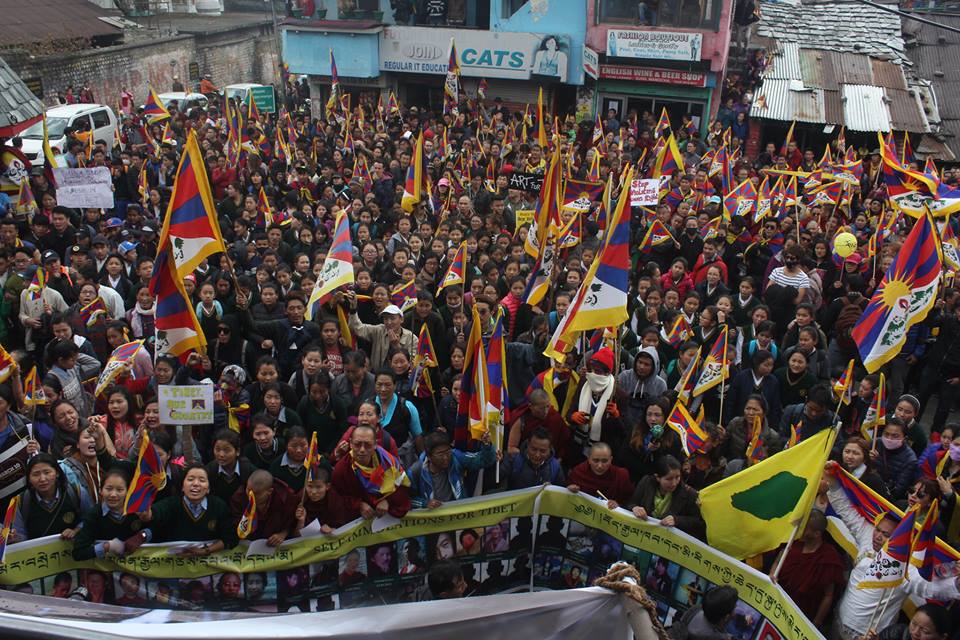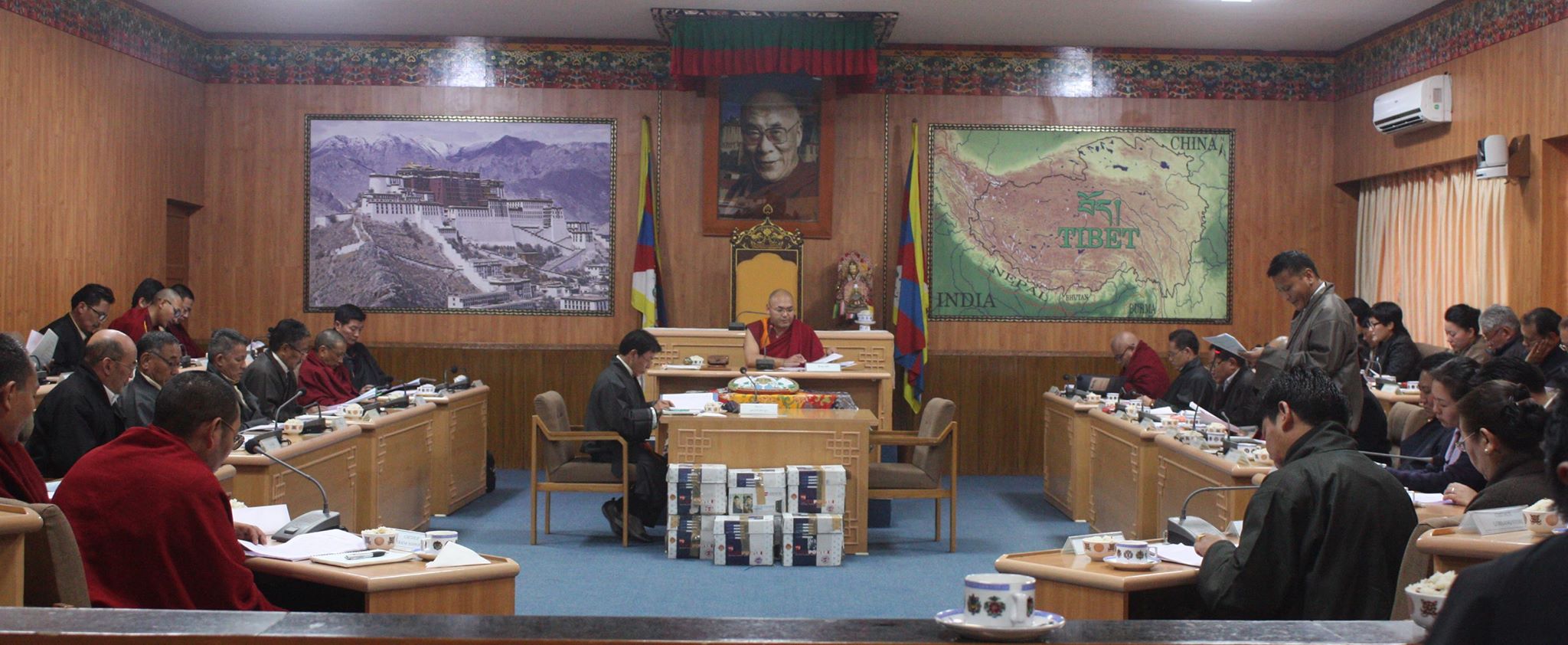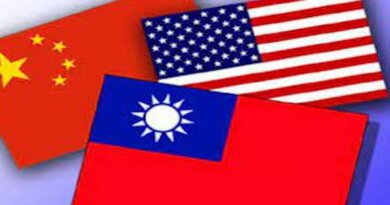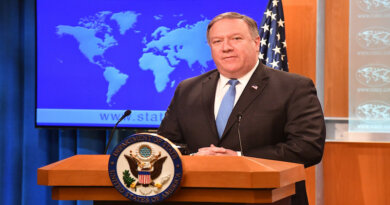An Open Letter by Concerned Tibetan Students/Researchers in Exile
By Lobsang Tenchoe
We are writing this with utmost concern about the recent development in Dharamsala regarding the resolution taken by a group (བོད་ཀྱི་རྩ་དོན་གླིང་སྐད་འཕྲིན་ཚོགས་པ།) and an association (དྷ་ས་ས་གནས་མདོ་སྨད་རྒྱུན་ལས།) ་to concert an effort to ostracize and demonize Lukar Jam from exile Tibetan community on the basis of his recent poem, perceived by many including us as an unnecessary jibe on H.H. the Dalai Lama.
We regret his comment and despite his later clarification that his comment was made purely in the form of art and have no political connotation, we feel art in itself cannot exist in a vacuum; therefore, his comments would understandably hurt the sentiment of the larger Tibetan community.
However, we feel that the decision taken by the abovementioned groups such as declaring him as the “enemy of the Tibetans” by categorising his ideas and action as the “ways of Communist Chinese” to even coordinating the social ostracization against him and by effect his family members as a morally unjustifiable act.
Moreover, such actions, we feel, not only goes against the fundamental ethos of the democratic society but also serves to subvert the H.H. the Dalai Lama’s vision of democratic Tibetan nation and the very essence of our unity he has fostered so far. H.H. the Dalai Lama through his longstanding commitment to tolerance and plurality of opinions has earned a global image of democratic leadership, therefore, such actions, we feel, only culminate in destructive repercussion.
In an established democratic system, the debate over the overall boundaries of “free speech” and “democratic responsibility” should be resolved through respectful public deliberation rather than arbitrary social ostracization.
In fact, the very existence of space to have divergent ideas, some more fringe than others, reflects the overall strength of exile democratic system.
In the end, we believe the democratic system that we have in exile has a generative capability, that is through open discussion, debate, criticism and dissent; we can come to more informed and considered choices.
Any action that arbitrarily shuns the debate and obstructs public reasoning—even that of seemingly fringe ideas—will impede the overall progress of our democratic nation.
In writing this open letter, we are not just particularly concerned about Lukar Jam as an individual per se, which is no less important, rather we feel a sense of responsibility towards the overall democratic space in exile and the global image of H.H. the Dalai Lama.
We urge all Tibetans in general and particularly the members of civil society such as researchers, writers, students and public intellectuals to come forward and engage in safeguarding the democratic space in the spirit of public deliberation.
Since “Democracy” in the words of H.H. the Dalai Lama, “is about much more than these formal institutions (government’s); it is about genuine freedom and the empowerment of the individual”་(Dalai Lama, 1999).
Citation: XIV Bstan-dzin-rgya, D. L. (1999). Buddhism, Asian values, and democracy. Journal of Democracy, 10(1), 3-7.
Signed by (Arranged in alphabetic order):
Dawa Lokyitsang (University of Colorado Boulder, U.S), Dhondup Tsering (Delhi University alumnus, Australia), Gedun Gyatso (Jawaharlal Nehru University, India), Jamyang Phuntsok (Pennsylvania State University, U.S), Jigmey Yeshe (Assistant Professor, University of Calcutta, India), Lobsang Kyinzom (University of Bangalore, India), Lobsang Tenzin (Banaras Hindu University, India), Migmar Dolma (University of Geneva, Switzerland), Norzin Lhamo (University of Zurich alumna, Switzerland), Nyima Dorjee (Delhi University alumnus, India), Palden Sonam (SOAS, U.K), Phuntsok Dhondup (University Westminster, U.K), Phuntsok Choephel (Jawaharlal Nehru University, India), Sherap Chomphel (Banaras Hindu University, India), Sonam Gyatso (Banaras Hindu University, India), Tashi Phuntsok (Assistant Professor, University of Calcutta, India), Tsering Choedon (Emory University alumna, India), Tsering Gyalpo (Jawaharlal Nehru University, India), Tenzin Shakya (Katholieke Universiteit Leuven, Belgium), Tenzin Tsomo (Former Editor, Times of India, U.S.), Tenzin Oesel (Central University of Gandhi Nagar, India), Tende Yundung (University of Zurich, Switzerland), Thinley Wangchuk (Jawaharlal Nehru University alumnus, India), Thinley Woeser (Banaras Hindu University, India), Ugyan Choedup (Jawaharlal Nehru University, India) and Za Thinley Gyatso (Jawaharlal Nehru University, India)





